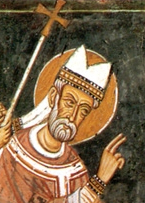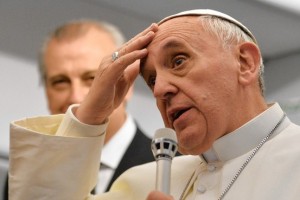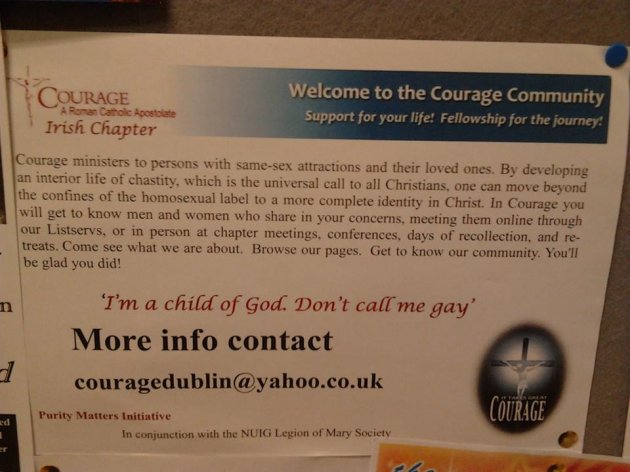The Venerable Marcell of the Virgin of Carmel, OCD
Yesterday the Holy Father signed a number of decrees advancing several Causes. Among them was one of our Carmelite friars, Fr Marcell of the Virgin of Carmel who was declared Venerable. Venerable Marcell was Hungarian and suffered under the Communist regime there. I thought I would share his life story with you.
Fr Marcell was born Morton Boldiszár on the 9th September 1877 in Zalakomar, Hungary. He was educated locally and went on, in 1905 to study Hungarian, Latin and Greek in the University of Budapest and afterwards entered the teaching profession. In 1914 he started working in a school in Zalagerszeg, a position he would hold until 1925. However with the outbreak of the First World War he volunteered and in 1916 was sent to fight. He would later write a book about his experiences in the army and the horrors of war, published in 1922. He was an outstanding teacher and was deeply admired and respected by his students. During these years, despite fervency in his childhood, Morton no longer practiced his faith, but had embraced the atheistic ideologies which were then prevailing in Europe. The war, however, had a profound effect on him and following his return from service a long process of gradual conversion began.
By the early 1920s he was discerning a vocation, and his decision was made in 1925 when he entered the Discalced Carmelite Order in Györ. He was given the name Marcell of the Virgin of Carmel, and following formation, he was ordained priest in 1930. As a friar and priest, Fr Marcell abilities were quickly appreciated. He was a wise confessor and many came to him for advice and spiritual direction. He was a truly contemplative friar who emanated serenity and holiness to those around him. He was inundated with people seeking advice and spiritual guidance and people would wait for hours to speak to him. He was also renowned for his preaching abilities. He continued his writing, publishing works on the Order, the spiritual life as well as poetry. By the 1940s Fr Marcell was a national figure, renowned for his simplicity and holiness. Among his spiritual children was Cardinal Mindszenty who himself would later suffer for his faith. He was known for his particular devotion to Our Lady and he encouraged his spiritual children to entrust themselves to her.
In 1943 he was appointed to the community in Budapest. In 1950 his peaceful religious life came to an abrupt halt with the invasion of the Russians and the dissolution of the monasteries. Determined to continue living his Carmelite life, Marcell retired to a life of hidden solitude, but given his reputation for holiness and fidelity to his faith and the Church he was constantly watched by the Communists. While his life was hidden, he continued his ministry quietly, helping those who were suffering persecution for their Catholic faith. He was a tower of strength for his spiritual children in particular. In the midst of the persecution, he counselled Catholics to remain true to their faith, to trust in God and to hope. Commending them to Our Lady, he encouraged them to entrust themselves to her maternal intercession and protection.
These years of persecution were also years of increasing ill health and suffering for Fr Marcell. He carried this burden with great serenity and faith. He died on the 29th May 1966 and was buried in the crypt of the Carmelite Church in Györ. Without doubt, Fr Marcell is a providential figure for us Christians in these times as we face gradual persecution under more dominant secular forces. He encourages us to hold true to our faith regardless of what may try to distract us, to find a powerful help in the intercession of our Mother Mary, and to remember that we are called to be witnesses to hope, to be light and salt, in what may well be a dark age. We await a miracle for the Venerable Fr Marcell’s beatification.
The Venerable Clemens Fuhl, OSA
Among the other candidates raised yesterday was Fr Clemens Fuhl, former Superior General of the Augustinian Order. Fr Clemens was another renowned for his holiness. A friend of mine spent some time in the Augustinians and he used to tell me about him. One story which touched me concerned his tender love for the Pope. He was a busy man when General and often out giving talks, and sometimes he would arrive back very late to Santa Monica, the Augustinian Headquarters, and at times he found the door locked and the friars in bed. Instead of knocking on the door and getting a friar up from his bed, Fr Clemens would walk across the street to St Peter's Square and looking up at the Papal Apartment he would spent the night in prayer for the Holy Father. For those of you who have spent time sitting under the colonnades in St Peter's looking up at the Papal window, Fr Clemens is a patron for you. Fr Clemens was declared Venerable yesterday.
The Venerables Maria Scholastica and Maria Olivia
I also have to mention two others: the now
Venerable Maria Scholastica of Divine Providence who assisted Blessed James Alberione of the Paulines in founding the Pious Disciples of the Divine Master. I know a number of these sisters - they have houses in Ireland, and they will be overjoyed at yesterday's news. So congratulations to them. And also the now
Venerable Maria Olivia of the Mystical Body, foundress of the Institute of the Daughters of the Church, a wonderful congregation of sisters who kept me out every Saturday night when I was studying in Rome. No, I was not out on the streets carousing or drinking coffee to the middle hours in the convent: every Saturday evening they hosted Vespers and adoration in their church, Santa Maria in Via Lata, on the Via del Corso. Their "breezy veils" were always distinctive (and they wear them still). There for a couple of hours in the evening one could commune with the Lord in the company of the good sisters.














